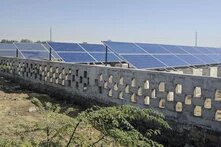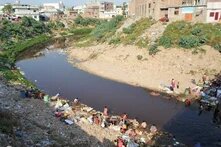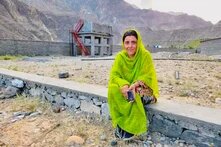Abdullah Khoso & Jameel Junejo

The Sindh province faces a range of human rights issues. From July 2019 to December 2020, the Sindh Human Rights Commission (SHRC) noted 728 cases of human rights violations. The cases include extrajudicial killings, custodial torture, enforced disappearances, honor killings, domestic violence, sexual harassment, rape, kidnapping, illegal occupation of the property, workplace harassment, and forced child marriages. In order to promote and protect human rights in the province, government of Sindh has established three Human Rights Institutions (HRIs): Sindh Child Protection Authority (SCPA), Sindh Human Rights Commission (SHRC) and Sindh Commission on the Status of Women (SCSW).
The Paris Principles adopted in 1993 by the UN General Assembly set guidelines for the role, governance and functions of human rights institutions. The key elements of the Paris Principles include pluralism, broad mandate, broad functions, power, resources, cooperative work and international engagement.
Independence of the HRIs refers to their freedom from control and influence of the government, the NGOs, or other stakeholder. The autonomy and independence of HRIs are reflected in their founding laws, mandates, framing policies and plans, and having adequate funds to execute their mandates. Importantly, HRIs must have independent members. This is not the case with Sindh’s Human Rights Institutions. The appointment of the Chairperson and members in the SCPA and the SHRC is done through non-parliamentary procedure. Civil servants appoint the members, which influences the neutrality of these institutions. Only in SCSW, the chairperson and the members are appointed through parliamentary procedure.
Pluralism implies that an HRI should have diverse social forces (of civilian society) as members. The SHRC and SCSW both have men and women members from the government, NGOs, and religious minorities, but representation from trade unions, peasant rights organizations and children’s representation is lacking.
Broad mandate and broad functions indicate that these institutions promote and protect all human rights recognized in international human rights treaties and conventions, provide guidance, monitor, receive complaints, provide human rights education, and carry out other activities as mandated in the founding laws. SCPA and SHRC can receive complaints but (except the SHRC) cannot take suo moto actions, hold proceedings, and have no civil court powers. These are not quasi-judicial NHRIs. Thus, their functions are limited as per Paris Principles.
Power means that an NHRI can initiate inquiries, collect evidence, engage with the NGOs and government agencies, and make their reports, conclusions and recommendations public. SHRC and the SCPA institutions have the suo moto powers, but the SCSW does not have this power. In 2021, the SCPAA was amended to increase its power, functions, and mandates to protect children in the province.
The SHRC and the SCSW do not have civil court powers and are not treated as quasi-judicial authorities. Another important funtion of the NHRIs is to monitor all institutions (such as detention centers, schools, and workplaces) without government interference. But the two of Sindh’s HRIs’ founding laws (the SPHRA and the SCSWA) are devoid of this key feature of power to monitor any detention place anytime.
Resources of HRIs refer to adequate funding, staffing, infrastructure, and institutional capacity to carry out activities and fulfill their responsibilities. The SCSW, SCPA, and SHRC do not have adequate human and financial resources.
Cooperative work indicates the NHRIs’ are able to cooperate and collaborate with State entities, NGOs, and civil society groups. Sindh’s HRIs are able to collaborate with civil society but have difficulties in seeking cooperation from the officers in the provincial government departments or line agencies.
International engagement refers to the HRIs’ powers and capacity to facilitate international and regional human rights authorities and processes by sharing their knowledge and skills. The SCPA, SHRC and SCSW have a mandate to publish reports. Yet, these institutions are not entitled to report to any UN human rights systems and mechanisms.
The SCPA, the SHRC and the SCSW have weak mandates and curtailed powers. There are gaps and flaws in the founding laws. Hence, these institutions work in a constrained way, navigating through obstacles to achieve the purposes outlined in their mandate and they often fail. The SCPA, SHRC, and SCSW do not fully meet the Paris Principles' criteria for NHRIs. The founding laws of these human rights institutions need to be amended fulfill their duties effectively.



